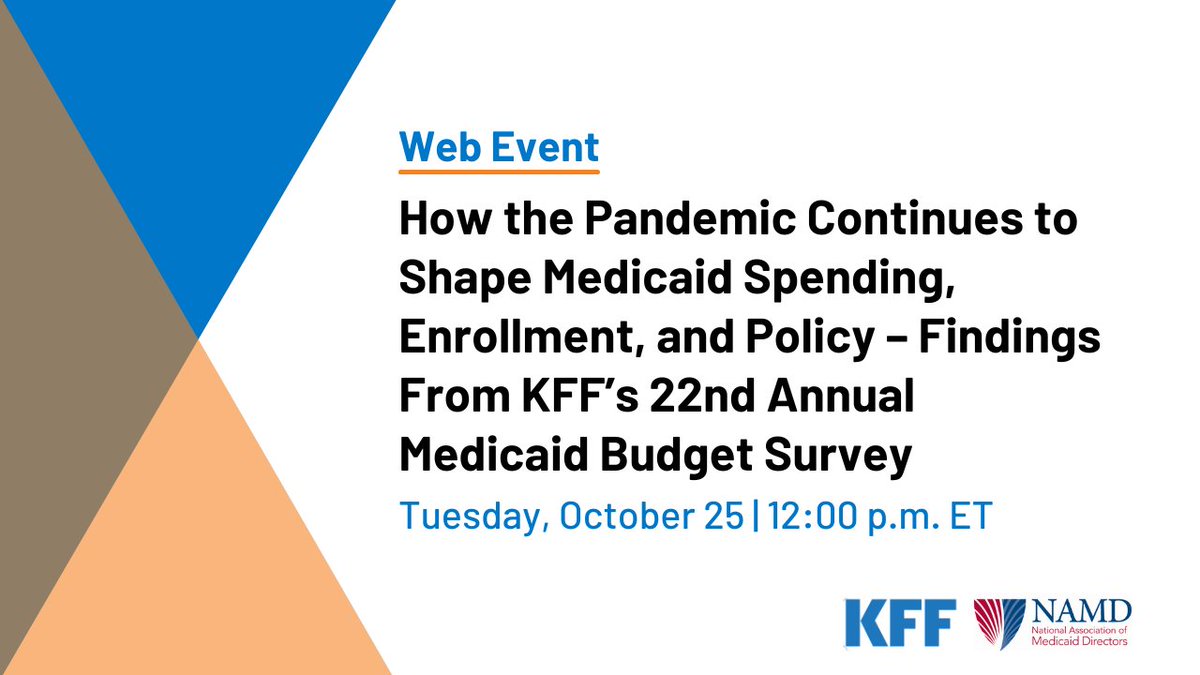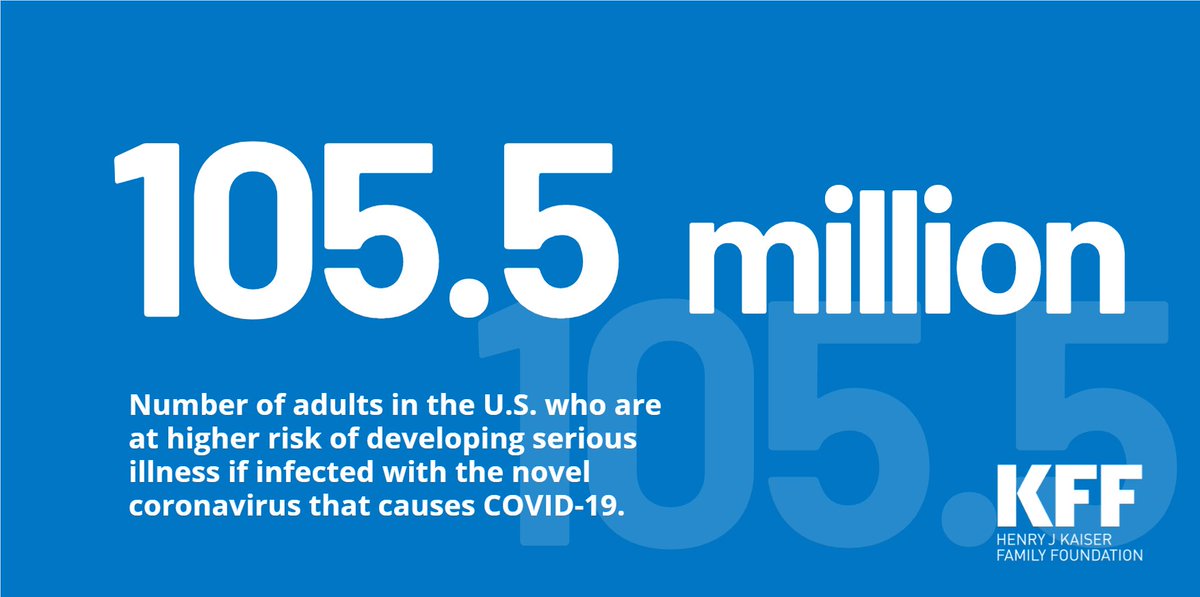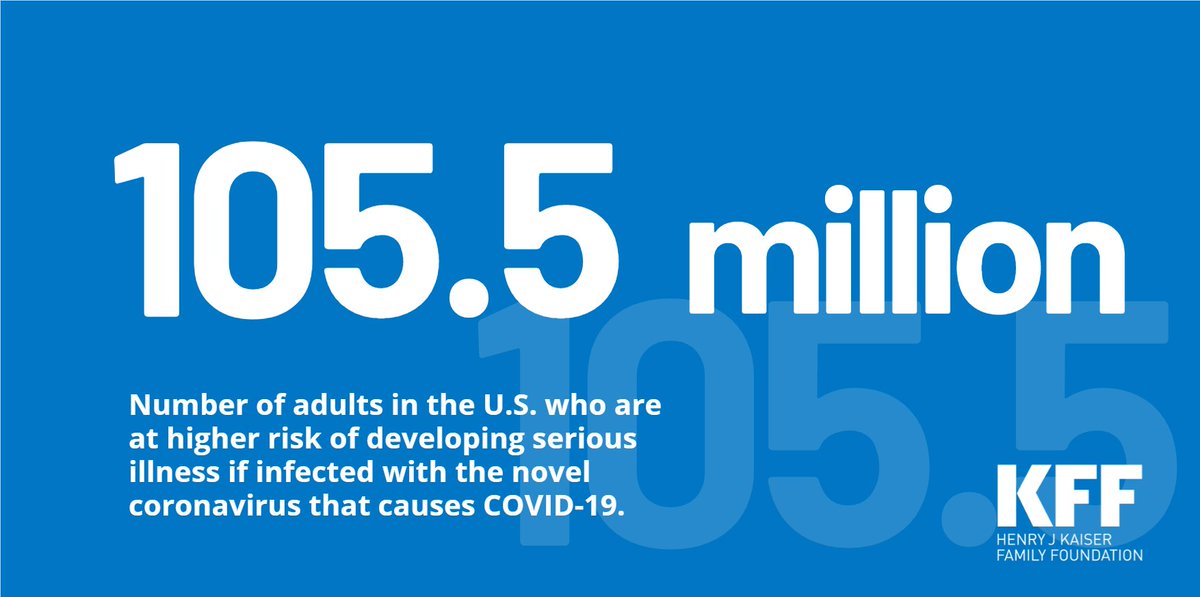
NEW: Our annual survey finds state #Medicaid agencies expect enrollment to decline, total spending growth to slow & state spending to rise after the expiration of the #COVID19 public health emergency, which most states anticipated would end by mid-FY 2023. kff.org/medicaid/issue… 

Our 22nd annual survey of state Medicaid directors also has findings about state Medicaid policies in areas such as delivery systems, health equity, benefits, telehealth, provider rates & taxes, pharmacy, and more. kff.org/medicaid/repor… 

How does the pandemic continue to shape #Medicaid spending, enrollment and policy? RSVP for today's web event, held with @statemedicaid, for the latest info on trends from KFF’s annual state Medicaid budget survey.
us02web.zoom.us/webinar/regist…
us02web.zoom.us/webinar/regist…

• • •
Missing some Tweet in this thread? You can try to
force a refresh









